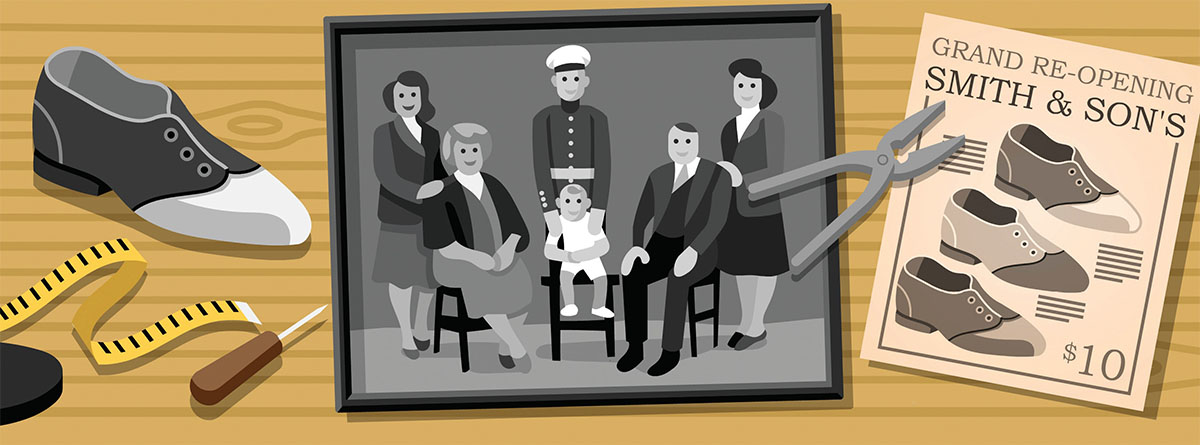
Diego Lowenstein ’90, CEO, is the third generation to work at Lionstone Development. Founded in 1966 and headquartered in Miami, Lionstone is an international developer of residential and hospitality ventures.
There is no magic formula for grooming the next generation, but make it a point to expose young children, even at the ages of 5 or 6, to the business. As they grow, involve them more by bringing them to the office, having them participate in meetings with other executives, and giving them summer internships (paid and otherwise). Also expose them to the business sector in a larger way, such as taking them to industry trade meetings, seminars, conventions, and on visits with competitors.
When they are in the university period of their lives (and, let’s hope, have chosen to go to Babson) and have demonstrated a passion to come into the family business, challenge them to keep up with the sector while in school and ask them to participate in decision-making activities that will mean something to them, such as longer-term planning. Have them take internships in similar companies and work for a competitor or in a similar field for a few years after graduating to understand “how things get done elsewhere.” But above all, find out if your young adult children truly have a passion for the business. If not, it is always better to let them go out on their own and find happiness with what they believe in.
Cyril Camus ’91, president, is the fifth generation to run the House of Camus. Founded in 1863 and headquartered in Cognac, France, Camus is an international producer of high-end cognacs and a distributor of wines and spirits.
Passing on the business is mostly a matter of passing on its core values and a sense of entrepreneurship. Concentrate on those, as all else ends up being mostly irrelevant.
Bob Paisner, MBA’85, CEO, is the second generation to work at ScrubaDub. Founded in 1966 and headquartered in Natick, Massachusetts, the car wash and service provider has 18 locations.
The current owners must believe that they are the stewards of their family enterprises, as these businesses—we hope—will pass from one generation to the next. Too many owners get an “offer too good to refuse” and sell out. While this may seem like a great deal, in the long run it may not be; if the business has a viable future and there are possible family members to take over, the greater opportunity for the next generation and the family’s wealth may be in not selling.
Taking on the role of stewards, owners must make decisions with a goal of transition rather than of sale in mind. The focus should be around constant communication of both business and family values. These values create a family business culture that is critical to continue through the younger generations. Clearly defined roles for family members and regular family meetings to discuss business and family issues also are very important.

Mathew Paisner, MBA’12, director of business development, is the third generation (Bob is his uncle) to work at ScrubaDub.
When I was growing up, my grandfather told me stories at the dinner table about situations he encountered in the family business. I learned about ethics, leadership, and customer service. However, the most important lesson he taught me was how valuable and meaningful it is for family business leaders to think about creating an opportunity for the next generation, as opposed to leaving behind a large sum of money. This requires creating a culture that mutually reinforces family and business values.
So the best advice I can give to others being groomed to join their family businesses is to ensure expectations are aligned among all family members on defining those family and business values. These values should be discussed and documented in writing. They should define roles, responsibilities, and expectations so that no family member feels like there is a question about how he or she fits in or about the future vision for the family business. Too often, family businesses avoid these conversations and assume everyone is on the same page. The next generation needs to embrace this value system while managing new views, so that ultimately everyone achieves a shared vision.
Sheri Baraw Smith, MBA’92, vice president and general manager, is the third generation to work at Stoweflake Mountain Resort & Spa. Founded in 1963 and located in Stowe, Vermont, the year-round resort offers upscale accommodations and amenities, as well as a range of on- and off-site activities.
I’ve talked to many people in family businesses, and there often is drama when people enter or leave the business. We’ve worked very hard to avoid that. My grandfather’s belief was that you made sure your family members are OK, but you don’t allow them to come in just because they are family. It’s more, ‘Here’s the opportunity, this is what the commitment would be, and this is the required skill set.’
I always knew I wanted to be in our family business. But when I graduated from college, I was 21 years old, and my dad said I could not yet work for the resort. Our family believes you have to have experience elsewhere, which will help you be more prepared and committed. Also, the right role needs to be open.
Years later, when the resort’s assistant general manager decided to move on, my father asked if I was ready to move back. So I came, and as part of the process I actually interviewed my father, asking him what the position would be. Even if you know you want to join the business, you need to think about the role you’ll be taking and whether you can work with the family members in the business. I knew I would be reporting directly to my father, and there are pros and cons to that. I also would be taking a management role and becoming the boss of some managers who had been there for a very long time. I had to consider what that would mean.
Our plan for transitioning the next generation, including my children, nieces, and nephews, is to follow the same steps as when my generation came on board. First, get experience elsewhere, whether in the hotel industry or not. The skill sets are often transferable. We are not a large business, so the fresh look you bring is really important. A position also has to be open. So far my son, who is 15, is the only one who has shown an interest in joining the business. He has a warm, welcoming personality and is very good at socializing with guests. If he decides to come in some day, the path he takes will depend on attrition.

Evie Merrill, MBA’15, senior marketing manager, is the fourth generation to work at Bartell Drugs. Founded in 1890 and headquartered in Seattle, the drugstore chain has 65 stores in the Puget Sound region.
It’s OK to wait to enter your family business and get some experience elsewhere first. You’ll be able to fall back on your previous accomplishments, which will build credibility among your work associates within your family business.
Also, I think I’ve built trust within our business by making sure I’m humble, approachable, and accountable for my actions. Through these practices, I’ve been able to push through some of the negative assumptions—such as entitlement, laziness, and an inability to receive feedback—that people can make about a family member entering their own business.
Paul Iantosca ’74, P’00, is the founder, owner, and principal of the Arborview Cos., a realty, property management, and restoration firm founded in 1980 and headquartered in Jamaica Plain, Massachusetts.
When I was a child, I envisioned buying and running my father’s company after college. As a result, from an early age I studied how he managed his company, how he treated people, how he grew the business, and how people reacted to his style. I learned that employees do not respect an owner’s child who just comes in and assumes the head of operations. The respect from workers comes when a younger member of the family starts at the bottom and works up through the ranks. By taking this route, they see what other employees have to deal with and how they handle various functions.
In the end, I founded my own business. I’ve taken my three children to my job sites, to my clients’ homes, and to my offices since they were 5 and 6 years old. I wanted them to learn to be comfortable in these settings. My children were on site while I talked with contractors and building inspectors, and they became familiar with what we do and how we operate. That familiarity and knowledge may lead a child to want to work in a career that is similar to their parents’.
Fortunately for me, I went to Babson, and we studied the dynamics of family businesses. From classes and personal experience, I can share the following advice. Younger family members should work in various divisions within the company before taking a management position. Company leaders need to realize that the younger generation will do things differently, from designing new programs to adjusting operations to introducing new technology. While allowing thoughtful execution of new ideas, leaders should work with the younger generation to monitor results before making new ideas permanent practices. Personally, I knew I wasn’t going to agree with everything my son wanted to do. But I felt that if I had not listened to him and tried his ideas, he would have become frustrated. So as a leader, you have to learn to turn the reins over slowly and give children some latitude.
Not only did my oldest son, Christian, join the company, but my second son and daughter also joined. They all are on a pay structure that is tied to the performance of their divisions. They have their own divisions, but they work together, helping each other continuously. Five years have passed since they’ve all been on board, and the company is extremely successful.

Christian Iantosca ’00, Realtor and certified residential specialist, is the second generation to work at Arborview Realty, part of the Arborview Cos.
My advice to others being groomed to become a part of a family business is to soak up all the knowledge of the mentor and gain a meaningful understanding of the business before taking a leadership role. When I started, for example, my father made sure that I worked directly with people at all levels of the company so I could understand their roles and the challenges they face. Gaining this knowledge has helped me shape the company in future years. On the client side, my father’s way of doing things—in a very personal, face-to-face manner—was different from mine. However, I forced myself to do things exactly as he instructed, even though this often felt uncomfortable, in order to learn different ways to approach clients. In my first few years, I was interacting with my father’s longtime clients, so they expected me to do business like him.
I also would not try to make any changes for the first year or two. Instead, learn what the clients value about the existing business, and why they choose to do business with your company. Eventually, I shifted the focus of the business and targeted younger, more tech-savvy clients, which has been critical to our continued success. The long-term relationships established by my father got our business to the top, but his clients were phasing out, and I knew we needed to change the focus to stay successful. However, if I had tried to make this pivot too early, I would have missed grasping the core reasons why the business had been so successful in the past.
When proposing changes to the business, get your parents and other involved family members to buy in to your ideas. Change comes slowly when two generations are working together, so be patient and share your vision way in advance of when you hope to make the change. Look for examples that can illustrate why the new way will work, and keep pushing for it. Eventually, you will earn the respect of the older generation, and they will see that you are successful and trust you to take the helm. But don’t assume that being a family member will make it less arduous to convince the management team of the merit of your proposed changes.
Eshika Agarwal ’19 is a current student who hopes to join her family’s business, Jaydurga Furnishings, founded in 1999, and Jaydurga Decor, founded in 2013, both headquartered in Hyderabad, India. Jaydurga Furnishings is a retail outlet for furnishing products, such as curtains, carpets, linens, and wallpaper, and Jaydurga Decor distributes curtains and upholstery fabrics.
I strongly believe that shared leadership between the older and newer generations will lead to higher levels of success. The newer generations must learn from the experiences of their elders and understand the struggles that these previous generations have faced in building the organization to its current level of success. However, I think it is even more important for the older generations to step back and allow the younger generations to solve problems on their own and make mistakes. Perhaps the younger family members could handle a different aspect or line of the business; this would allow them to obtain a sense of independence and provide them with a platform to explore new, innovative ideas. A perfect synergy will exist when all generations value and truly respect each other, personally and professionally.
